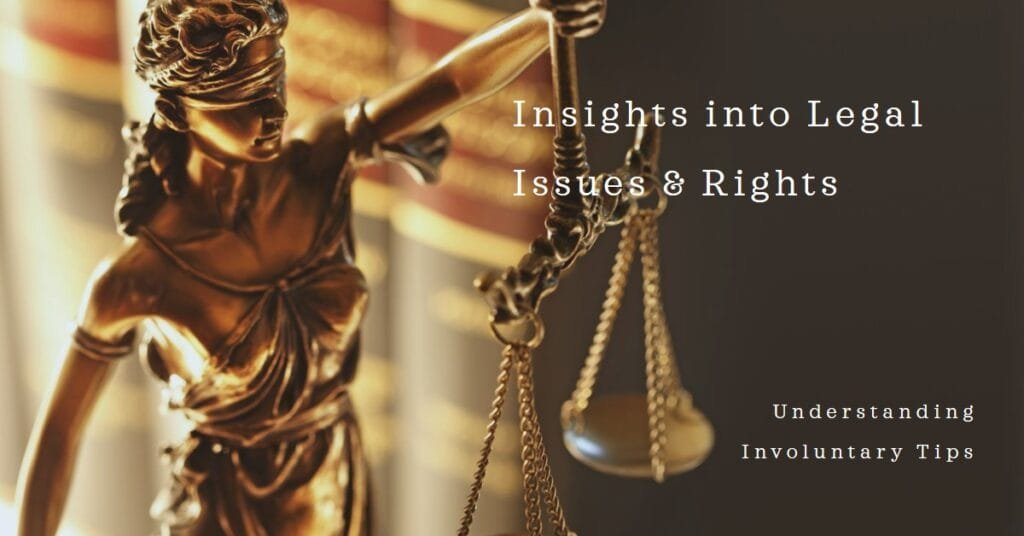Service-based businesses such restaurants, hotels, and personal services have historically depended on tips as a basic component. Still, a recent case—Case No. 7906301 Involuntary Tips—has drawn attention to a dubious practice: forced tips.

In one instance, customers expressed worries over companies and restaurants automatically including gratuities on their invoices without their express permission. The problem has spurred a discussion on the ethics, legality, and consumer expectations about tipping policies.
We will discuss the idea of involuntary tips in this post, review Case No. 7906301, and investigate more general ramifications for consumers and companies. We will also go into the possible legal results and what that can signify for next tipping rules.
What Are Involuntary Tips?
Involuntary tips—also called automatic gratuities or forced service charges—occur when companies automatically add a set percentage to a customer’s bill as a gratuities for service professionals. Unlike voluntary gratuities, which let the consumer choose the amount depending on the quality of the services, forced tips are non-negotiable and incorporated into the whole charge.
Usually, involuntary tips are enforced on bigger groups or in cases when companies feel the service personnel is underpaid. But especially in cases when customers are not notified ahead of time, the approach might cause uncertainty and discontent among them.
The Origins of Involuntary Tips
Particularly in nations like the United States where service employees often rely on tips to augment meager hourly pay, tipping is a deeply ingrained habit in the service sector. Introduced as a means of guaranteeing equitable pay for employees, especially in group dining environments where gratuities could be unevenly dispersed or even ignored, involuntary tips were first used
To stop under-tipping, restaurants and other service-based companies started including automatic gratuities to bills for parties bigger than six or eight. But over time some companies started using these fees more broadly—even for smaller groups—which drew complaints from consumers who felt their ability to tip was being compromised.
Case No. 7906301: The Key Facts
Case No. 7906301 Involuntary Tips revolves on a class-action lawsuit launched against a chain of restaurants for their usage of forced tipping. The plaintiffs claimed the restaurant deceived consumers into thinking they were having the choice to tip freely and neglected to clearly show the automatic gratuity. Consumers said they received bills including an automatic 18% gratuity imposed without notice or clear indication.
The case’s plaintiffs brought up numerous important issues:
- Lack of Transparency: Many patrons were surprised to learn their invoices already included the gratuity. Some even tipped extra amounts to result in over-tipping.
- Misrepresentation: The plaintiffs claimed that although the automatic gratuity was added independent of service quality, the menu and payment system of the restaurant suggested that tipping was voluntary.
- Unfair Business Practices: The lawsuit alleged that by not giving sufficient transparency and distorting the nature of the gratuity, the restaurant’s behavior broke consumer protection regulations.
The story attracted media attention right away and begged issues of the legality and fairness of forced tipping methods in the larger service sector.
Legal Perspectives on Involuntary Tips
Legal standing for forced tips differs based on jurisdiction. For example, the IRS treats automated gratuities in the United States as service costs instead of tips, therefore affecting the tax laws. Federal legislation mandates that companies explicitly disclose any automated service costs; failing to comply could lead to legal action.
The plaintiffs in Case No. 7906301 contended that by not giving enough warning of the obligatory gratuity, the restaurant broke state consumer protection rules. Legal experts advise that the case’s result could establish a standard for future corporate disclosure of such costs.
Consumer Protection Laws
Consumer protection rules in several states mandate that companies show complete pricing transparency including any extra fees or levies. Regarding forced tips, these rules may require companies to explicitly tell patrons of any automatic gratuity—by menu disclaimers or direct service staff contact.
Should companies neglect to give sufficient notice, customers could be entitled to launch lawsuits alleging misgagement or overcharging.
Tax Implications
From a tax standpoint, automated gratuities are handled as service costs, hence many countries see them as liable to sales tax. For customers as well as companies, this difference might be crucial since it determines how tips are recorded and distributed.
Generally free from sales tax, tips in voluntary tipping systems route themselves straight to the service crew. Automatic gratuities are seen as part of the whole sales, hence both companies and customers could have more tax obligations.
The Ethical Dilemma of Involuntary Tips
Although in some cases involuntary tips are lawful, they create moral issues about the interaction of companies, staff members, and consumers. Particularly in cases of non-previous knowledge, the technique might leave clients feeling duped.
1. Customer Autonomy
Traditionally, customers have used tips to show appreciation for excellent service. Businesses eliminate the ability of customers to determine how much (or if) to tip depending on the quality of the service by imposing forced tips. This might cause annoyance, especially in cases when the service might fall short of expectations.
2. Impact on Service Quality
Critics contend that forced tipping could lower the incentive for service employees to deliver first-rate performance. Guaranteed gratuity may discourage servers from going above and beyond to assure customer happiness.
3. Fair Compensation for Workers
Advocates of forced tips, on the other hand, contend that they give service employees—who could otherwise be under-tipped reasonable and consistent pay. Particularly in situations when consumers are ignorant of tipping practices or prefer not to tip, involuntary tips guarantee that workers in low-paying sectors get a minimal amount of revenue.
Case No. 7906301: Potential Outcomes
The result of Case No. 7906301 might have major effects on consumers and companies both. Should the plaintiffs be successful, companies might have to change their tipping procedures completely or offer more transparent information on automatic gratuities.
1. Stricter Disclosure Requirements
One possible result of the case is the tightening of disclosure rules for companies which impose automatic gratuites. To guarantee that consumers are completely aware before making a payment, this can include required alerts on menus, receipts, and staff verbal communication.
2. Limitations on Automatic Gratuities
Courts could also restrict when and how companies are permitted to include forced tips. For instance, automated gratuities would only be allowed for bigger groups or companies might have to offer a choice for consumers to opt-out from.
3. Changes to Tipping Culture
Should the situation result in general changes in how companies handle tips, it might initiate a more general change in tipping culture. Certain companies might choose all-inclusive pricing strategies whereby service charges are included into the cost of meals and services, therefore excluding tipping entirely.
Conclusion: A Turning Point for Tipping Practices?
Case No. 7906301 has brought crucial issues about openness, fairness, and customer autonomy as well as underlined the difficulties of forced tipping. The legal fight could result in major changes in consumer interaction with service providers and tipping policies as it plays out.
Although forced tips may have been brought in with good intentions, the debate around them points to the need of more clarity and communication to keep confidence between companies and customers. One thing is certain: our tipping behavior might be about to change whether the outcome calls for tighter rules or a complete overhaul of tipping policies.
FAQs:
- What are involuntary tips?
- Involuntary tips, also known as automatic gratuities, are mandatory service charges added to a customer’s bill without their explicit consent.
- Why do businesses use involuntary tips?
- Businesses often add involuntary tips to ensure fair compensation for service staff, especially for large groups or in cases where tipping might be inconsistent.
- What is Case No. 7906301 about?
- Case No. 7906301 involves a lawsuit against a restaurant chain for failing to disclose automatic gratuities clearly, leading to confusion and over-tipping by customers.
- Are involuntary tips legal?
- The legality of involuntary tips varies by jurisdiction. Businesses must disclose such charges clearly, or they may face legal consequences.
- Could Case No. 7906301 change tipping practices?
- Yes, the outcome of the case could lead to stricter disclosure requirements for businesses or a shift in how tipping is handled in the service industry.


